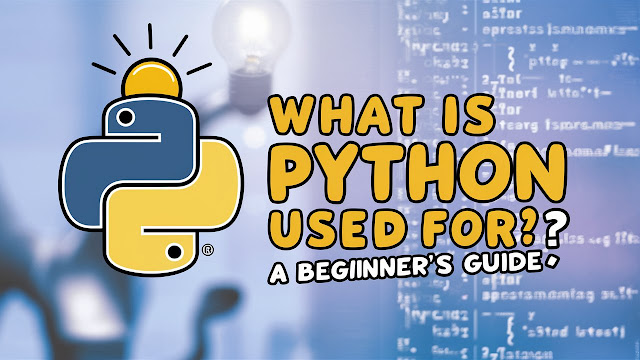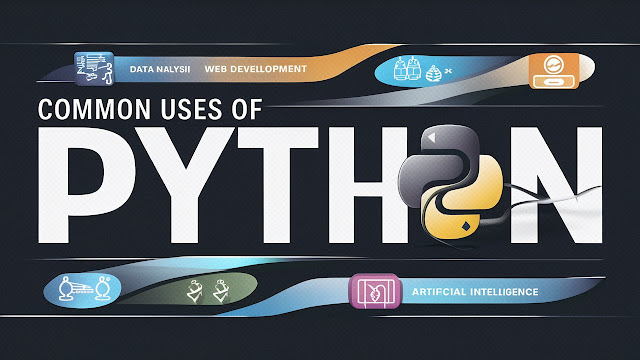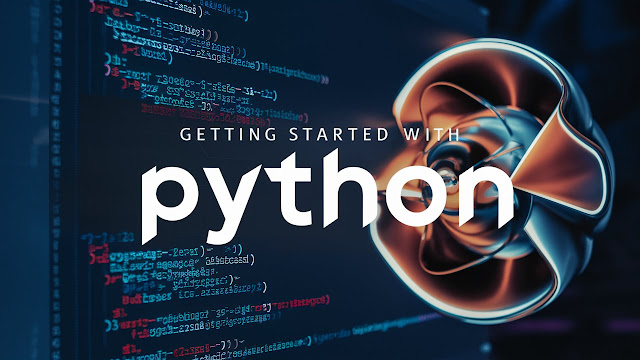What is Python Used For? A Beginner's Guide
- Web Development
- Data Science and Analytics
- Machine Learning and Artificial Intelligence
- Automation and Scripting
- Game Development
Let's know these things more deeply
Python is a programming language that is extremely popular in various fields because it is robust, adaptable and easy to learn. This tutorial will give you a thorough overview of Python's uses and benefits if you're trying to figure out what it's used for. Let's go ahead and learn more about these things۔
Why Learn Python?
Keywords: Why learn Python, Python benefits for beginners, Python language advantages
Because of its easy-to-read syntax, strong community, and simple syntax, Python is often recommended for beginners. Here are some reasons to think about learning Python: After reading this you will feel better than before۔
- Ease of Learning: Python is easy for novice programmers to learn because of its simple syntax, which closely resembles that of human language.
- Versatility: Python is useful in many domains, including data research and web development.
- Community Support: To assist you in learning Python, a plethora of tutorials, forums, and other resources are accessible.
Common Uses of Python
Keywords: Python applications, Python use cases, what is Python used for
Python may be utilized in a variety of applications due to its adaptability. Following are a few of the most typical uses:
1. Web Development
Keywords: Python web development, Django, Flask
Python is a popular language for web development because of strong frameworks like Flask and Django. These frameworks make it easier to create scalable and reliable web applications.
- Django: A high-level framework that promotes efficient development and logical design.
- Flask: A lightweight, adaptable micro-framework ideal for small to medium-sized applications.
2. Data Science and Analytics
Keywords: Python for data science, data analytics with Python, Python libraries for data science
The preferred language for data science and analytics is Python. It is perfect for managing and analyzing huge datasets because of its vast ecosystem of libraries and tools, which includes Matplotlib, NumPy, and Pandas.
- Pandas: offers tools for data analysis as well as data structures.
- NumPy: accommodates huge matrices and multi-dimensional arrays.
- Matplotlib: An interactive, animated, and static visualization toolkit for plotting.
3. Machine Learning and Artificial Intelligence
Keywords: Python machine learning, Python AI, machine learning libraries Python
Python is a popular choice for machine learning and artificial intelligence applications because of its ease of use and robust library. Machine learning model development and training tools are available through libraries such as Scikit-learn, TensorFlow, and Keras.
- TensorFlow: An open-source platform for machine learning.
- Keras: A high-level neural networks API.
- Scikit-learn: a machine learning library constructed using NumPy, SciPy, and Matplotlib.
4. Automation and Scripting
Keywords: Python automation, scripting with Python, Python automate tasks
Python is a great language for programming and automation. Email sending, online scraping, and file manipulation are just a few of the repetitive chores it can automate.
- Selenium: A tool for automating web browsers.
- Beautiful Soup: A library for web scraping.
- PyAutoGUI: A library for programmatically controlling the mouse and keyboard.
5. Game Development
Keywords: Python game development, Pygame, creating games with Python
Python is also useful for creating video games. Making games and multimedia apps is made easier by libraries like Pygame.
- Pygame: A set of Python modules designed for writing video games.
Getting Started with Python
Keywords: how to start learning Python, Python for beginners, Python programming start
Python is simple to start with because of the abundance of available materials. To help you get started, consider these steps:
- Install Python: Go to the official Python website (python.org) to download and install Python.
- Select an IDE: You may develop and test code more effectively by using Integrated Development Environments (IDEs) like PyCharm, VS Code, or Jupyter Notebook.
- Acquire the Fundamentals: Learn about data types, control structures, and Python syntax by taking online courses and tutorials.
- Practice: To get better at coding, work on little projects and do it frequently.
Conclusion Python Used For? A Beginner's Guide
Python is a flexible and approachable programming language that can be used for a variety of tasks, including automation, machine learning, and web development as well as data research. With its large library and ease of use, it's a great option for someone just starting out with programming. Gaining knowledge in Python may lead to a multitude of possibilities across several domains.
FAQs
1. Is Python good for beginners?
- Yes, Python's simple syntax and readability make it an ideal language for beginners.
2. What industries use Python?
- Python is used in web development, data science, machine learning, automation, game development, and more.
3. Can I use Python for web development?
- Absolutely! Frameworks like Django and Flask are widely used for building web applications.
4. How long does it take to learn Python?
- The time it takes to learn Python varies, but with regular practice, you can grasp the basics within a few weeks.
5. What are some popular Python libraries for data science?
- Popular libraries include Pandas, NumPy, Matplotlib, and SciPy.
By understanding what Python is used for and how it can benefit you, you're well on your way to becoming a proficient programmer. Happy coding!




